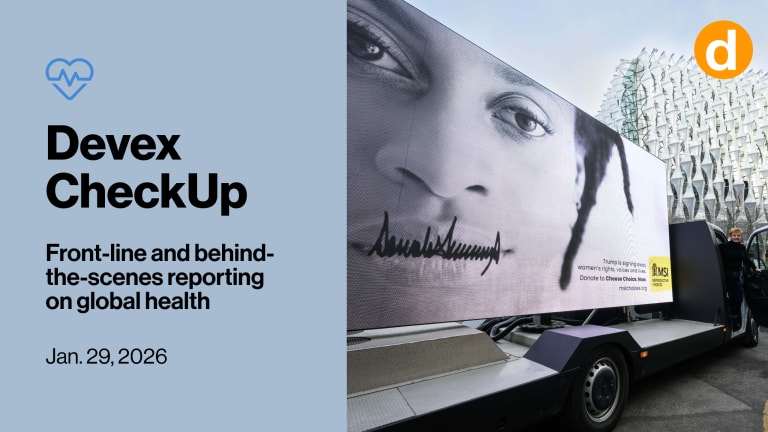
The World Health Organization declines to declare the Ebola outbreak an international public health emergency, the debate over tied aid heats up, and the International Safeguarding Summit in London starts with a controversial announcement. This week in development:
Government and NGO delegates gathered in London for the International Safeguarding Summit to address the sexual abuse scandal that has rocked the aid sector. The summit kicked off with the controversial announcement that a charity currently under investigation — Save the Children — will play a key role in a new register of aid workers. The register will be piloted in Asia and Africa in an effort to prevent perpetrators of sexual misconduct from moving around the sector. Save the Children is currently under investigation by the U.K. charity regulator for its handling of sexual harassment allegations, and is not bidding on contracts from the U.K. Department for International Development until the investigation is complete. As she announced the register, U.K. aid chief Penny Mordaunt was interrupted on stage by campaigner Alexia Pepper de Caires, a high-profile activist and Save the Children whistleblower. De Caires said she was “disgusted” to learn “that Save the Children would be awarded a headline project to try and tackle sexual misconduct in the sector when they are still under investigation by the Charity Commission themselves.” Stay tuned for key takeaways from the summit from Devex editor Jessica Abrahams.
The World Health Organization has refrained from declaring the Ebola outbreak in the Democratic Republic of Congo a public health emergency of international concern. The decision is based on the advice of an international group of experts convened by the U.N. agency to advise the director-general on the issue. While the committee acknowledged the challenging security situation in North Kivu — the center of the outbreak — they also said “not a single case has been” exported to date and they don’t see the “added value” of declaring the emergency since the international community is already actively responding to the outbreak. In a conversation with Devex, WHO Director-General Tedros Adhanom Ghebreyesus positively described the international community’s response, but he said the response is still very much reactive and lacks foresight. WHO’s Contingency Fund for Emergencies continue to receive well below $100 million in funding.
A new report found “significant mistakes were made by all parties” in handling the U.S. Agency for International Development’s global supply chain contract with Chemonics International. The report came out of a U.S. congressional oversight investigation into the global health supply chain procurement and supply management contract — USAID’s largest-ever contract and the primary way the organization delivers life-saving global health commodities for most U.S. global health initiatives. Last year, Devex revealed that the $9.5 billion contract faced chronic problems, including only having 7 percent of the health commodity shipments delivered to their destination “on time and in full” — a common metric for measuring the performance of a supply chain. The mistakes were made “at virtually every level and stage of the contract — from contract solicitation and the evaluation of proposals, through the transition, and into implementation,” the report found. There was no evidence that the supply chain issues interrupted treatment for any patients who were already receiving care, the report also stated.
The debate over tied aid is heating up at the Organisation for Economic Co-operation and Development, with top donors yet to agree to rule changes almost three weeks after a deal was expected at delegate-level talks in Paris on Sept. 27. The delay was due to members’ concerns that the initial proposal did not go far enough in untying aid, which an OECD report this year found “increases aid effectiveness by reducing transaction costs and improving recipient countries ownership.” But one member state, Japan, believes the proposal went too far. The delayed agreement last month triggered negotiations with the 30 OECD Development Assistance Committee members, who represent most of the world’s richest aid donors, which culminated in a revised proposal to increase the number of places where contracts for development work must be open to firms outside the donor country.








